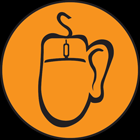Home Sciam
The Click Whisperer is Jason Pelish. He shares all the freaky "unbusinesslike" stuff through this blog. Like, share, subscribe, thumbs-up, vote it up, and all that or something.
Contact us: click@clickwhisperer.com
POPULAR CATEGORY
© Website by Massive Impressions Online Marketing - © 2025





